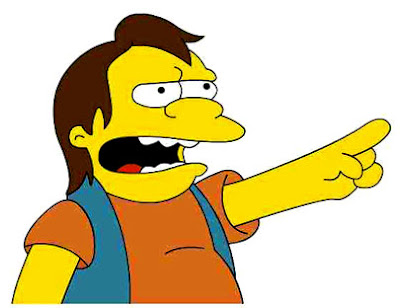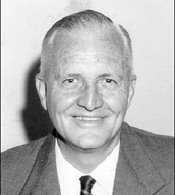DIVISION: Modern Evil Investments
EDITORIAL: At last! - It's finger-pointing time! The list of criminals responsible for the global financial crisis is a who's who of high-powered insiders, all of whom have made out like robber barons and will never, ever pay the least penalty. Fantastic! As an S&P analyst wrote, "Let's hope we are all wealthy and retired by the time this house of cards falters." Here are 25 who made it out alive.

Twenty-Five People at the Heart of the Meltdown
The worst economic turmoil since the Great Depression is not a natural phenomenon but a man-made disaster in which we all played a part. In the second part of a week-long series looking behind the slump, Guardian City editor Julia Finch picks out the individuals who have led us into the current crisis.
by Julia Finch, with additional reporting by Andrew Clark and David Teather
Alan Greenspan, Chairman of US Federal Reserve 1987- 2006
Only a couple of years ago the long-serving chairman of the Fed, a committed free marketeer who had steered the US economy through crises ranging from the 1987 stockmarket collapse through to the aftermath of the 9/11 attacks, was lauded with star status, named the "oracle" and "the maestro". Now he is viewed as one of those most culpable for the crisis. He is blamed for allowing the housing bubble to develop as a result of his low interest rates and lack of regulation in mortgage lending. He backed sub-prime lending and urged homebuyers to swap fixed-rate mortgages for variable rate deals, which left borrowers unable to pay when interest rates rose.
For many years, Greenspan also defended the booming derivatives business, which barely existed when he took over the Fed, but which mushroomed from $100tn in 2002 to more than $500tn five years later.
Billionaires George Soros and Warren Buffett might have been extremely worried about these complex products - Soros avoided them because he didn't "really understand how they work" and Buffett famously described them as "financial weapons of mass destruction" - but Greenspan did all he could to protect the market from what he believed was unnecessary regulation. In 2003 he told the Senate banking committee: "Derivatives have been an extraordinarily useful vehicle to transfer risk from those who shouldn't be taking it to those who are willing to and are capable of doing so".
In recent months, however, he has admitted at least some of his long-held beliefs have turned out to be incorrect - not least that free markets would handle the risks involved, that too much regulation would damage Wall Street and that, ultimately, banks would always put the protection of their shareholders first.
He has described the current financial crisis as "the type ... that comes along only once in a century" and last autumn said the fact that the banks had played fast and loose with shareholders' equity had left him "in a state of shocked disbelief".
Politicians
Bill Clinton, Former US President
Clinton shares at least some of the blame for the current financial chaos. He beefed up the 1977 Community Reinvestment Act to force mortgage lenders to relax their rules to allow more socially disadvantaged borrowers to qualify for home loans.
In 1999 Clinton repealed the Glass-Steagall Act, which ensured a complete separation between commercial banks, which accept deposits, and investment banks, which invest and take risks. The move prompted the era of the superbank and primed the sub-prime pump. The year before the repeal sub-prime loans were just 5% of all mortgage lending. By the time the credit crunch blew up it was approaching 30%.
Gordon Brown, Prime Minister
The British prime minister seems to have been completely dazzled by the movers and shakers in the Square Mile, putting the City's interests ahead of other parts of the economy, such as manufacturers. He backed "light touch" regulation and a low-tax regime for the thousands of non-domiciled foreign bankers working in London and for the private equity business.
George W Bush, Former US President
President Clinton might have started the sub-prime ball rolling, but the Bush administration certainly did little to put the brakes on the vast amount of mortgage cash being lent to "Ninja" (No income, no job applicants) borrowers who could not afford them. Neither did he rein back Wall Street with regulation (although the government did pass the Sarbanes-Oxley Act in the wake of the Enron scandal).
Senator Phil Gramm
Former US senator from Texas, free market advocate with a PhD in economics who fought long and hard for financial deregulation. His work, encouraged by Bill Clinton's administration, allowed the explosive growth of derivatives, including credit swaps. In 2001 he told a Senate debate: "Some people look at sub-prime lending and see evil," he said. "I look at sub-prime lending and I see the American dream in action."
According to the New York Times, federal records show that from 1989 to 2002 he was the top recipient of campaign contributions from commercial banks and in the top five for donations from Wall Street. At an April 2000 Senate hearing after a visit to New York, he said: "When I am on Wall Street and I realise that that's the very nerve centre of American capitalism and I realise what capitalism has done for the working people of America, to me that's a holy place."
He eventually left Capitol Hill to work for UBS as an investment banker.
>> Read Full Article

No comments:
Post a Comment